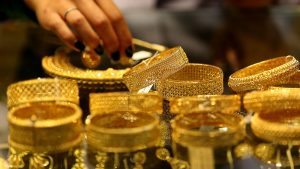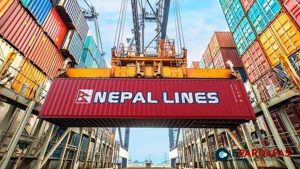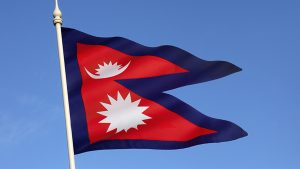
U.S. Officials Caution Black Friday and Cyber Monday Shoppers Amidst Surge in Counterfeit Products

United States Customs and Border Protection (CBP) and Homeland Security Investigations (HSI) officials have issued a stark warning to Black Friday and Cyber Monday shoppers, urging caution against the purchase of counterfeit products, particularly those marketed with seemingly low prices.
During a press conference at New York’s John F. Kennedy International Airport on November 22, federal authorities showcased a recent seizure of counterfeit goods, ranging from handbags, backpacks, wallets, beanies, shoes, watches, and sunglasses featuring logos from prestigious brands like Louis Vuitton, Burberry, Chanel, Christian Dior, and Fendi. The seized items also included knockoff toys, bicycle helmets, makeup, iPhones, and even fake Oscar statues.
Francis Russo, Director of CBP’s New York field office, revealed that a significant portion of the seized goods, approximately 70 to 80 percent, originated from China and Hong Kong. Annually, U.S. authorities confiscate over 25 million counterfeit goods, with more than 30 percent passing through New York customs alone. If genuine, the estimated retail value of the seized knockoffs could exceed $2.98 billion.
While China remains a major source, counterfeit products from Thailand, Turkey, the Philippines, and India have also been identified, according to officials.
The surge in e-commerce has contributed to the influx of fake merchandise, with a tenfold increase in packages entering the United States through New York and New Jersey customs, rising from 20 million in 2019 to 210 million in 2022. Authorities estimate that 1 to 2 percent of these packages could contain counterfeit products.
As retailers gear up for Black Friday on November 24, online platforms like Amazon have already initiated a week of sales. However, officials warn that the enticingly low prices may come at the expense of product authenticity.
Marina Vitaz, Assistant Special Agent-in-Charge of HSI, cautioned shoppers to be vigilant, stating, “If the deal seems too good to be true, it probably is!”
The officials emphasized that many consumers are unaware of the negative impacts associated with counterfeit items, particularly in categories affecting health and safety, such as personal care, pharmaceuticals, and consumer electronics. Fake prescription medicines, in particular, pose severe risks, potentially containing unregulated ingredients that could lead to serious health issues or death.
The surge in counterfeit goods not only jeopardizes individual safety but also poses a threat to the global economy, diverting revenue from legitimate businesses and potentially resulting in job losses over time.
A recent significant confiscation of counterfeit designer products valued at over $1 billion in New York underscores the severity of the issue. The U.S. government has identified China as a major contributor to counterfeit and pirated goods, with 75 percent of the value of such goods seized by CBP in 2021 originating from China, according to the latest report from the office of U.S. Trade Representative Katherine Tai. Several popular Chinese sites, including Taobao and WeChat, feature on the department’s Notorious Markets List.
U.S. Trade Representative Katherine Tai stated, “The widespread trade in counterfeit and pirated goods harms the economic security of American workers and undermines our work to craft equitable and inclusive trade policy.”
As shoppers dive into Black Friday and Cyber Monday deals, the plea from authorities is clear: exercise caution and choose reputable sources to avoid the potential risks associated with counterfeit goods.












Comments